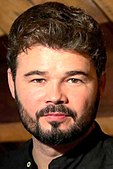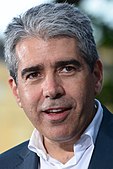| |||||||||||||||||||||||||||||||||||||||||||||||||||||||||||||||||||||||||||||||||||||||||||||||||||||
All 350 seats in the Congress of Deputies and 208 (of 266) seats in the Senate 176 seats needed for a majority in the Congress of Deputies | |||||||||||||||||||||||||||||||||||||||||||||||||||||||||||||||||||||||||||||||||||||||||||||||||||||
|---|---|---|---|---|---|---|---|---|---|---|---|---|---|---|---|---|---|---|---|---|---|---|---|---|---|---|---|---|---|---|---|---|---|---|---|---|---|---|---|---|---|---|---|---|---|---|---|---|---|---|---|---|---|---|---|---|---|---|---|---|---|---|---|---|---|---|---|---|---|---|---|---|---|---|---|---|---|---|---|---|---|---|---|---|---|---|---|---|---|---|---|---|---|---|---|---|---|---|---|---|---|
| Opinion polls | |||||||||||||||||||||||||||||||||||||||||||||||||||||||||||||||||||||||||||||||||||||||||||||||||||||
| Registered | 36,511,848 | ||||||||||||||||||||||||||||||||||||||||||||||||||||||||||||||||||||||||||||||||||||||||||||||||||||
| Turnout | 25,438,532 (69.7%) | ||||||||||||||||||||||||||||||||||||||||||||||||||||||||||||||||||||||||||||||||||||||||||||||||||||
| |||||||||||||||||||||||||||||||||||||||||||||||||||||||||||||||||||||||||||||||||||||||||||||||||||||
| |||||||||||||||||||||||||||||||||||||||||||||||||||||||||||||||||||||||||||||||||||||||||||||||||||||
The 2015 Spanish general election was held on Sunday, 20 December 2015, to elect the 11th Cortes Generales of the Kingdom of Spain. All 350 seats in the Congress of Deputies were up for election, as well as 208 of 266 seats in the Senate. At exactly four years and one month since the previous general election, this remains the longest timespan between two general elections since the Spanish transition to democracy, and the only time in Spain a general election has been held on the latest possible date allowed under law.[1]
After a legislature plagued by the effects of an ongoing economic crisis, corruption scandals affecting the ruling party and social distrust with traditional parties, the election resulted in the most fragmented Spanish parliament up to that time. While the People's Party (PP) of incumbent prime minister Mariano Rajoy emerged as the largest party overall, it obtained its worst result since 1989. The party's net loss of 64 seats and 16 percentage points also marked the largest loss of support for a sitting government since 1982. The opposition Spanish Socialist Workers' Party (PSOE) obtained its worst result since the Spanish transition to democracy, losing 20 seats and nearly seven points. Newcomer Podemos (Spanish for "We can") ranked third, winning over five million votes, some 20% of the share, 69 seats and coming closely behind PSOE. Up-and-coming Citizens (C's), a party based in Catalonia since 2006, entered the parliament for the first time with 40 seats, though considerably lower than what pre-election polls had suggested.
Smaller parties were decimated, with historic United Left (IU)—which ran in a common platform with other left-wing parties under the Popular Unity umbrella—obtaining the worst result in its history. Union, Progress and Democracy (UPyD), a newcomer which had made gains in both the 2008 and 2011 general elections, was obliterated, losing all of its seats and nearly 90% of its votes. At the regional level, aside from a major breakthrough from Republican Left of Catalonia (ERC), the election saw all regional nationalist parties losing votes; the break up of Convergence and Union (CiU), support for the abertzale left EH Bildu coalition falling sharply, Canarian Coalition (CC) clinging on to a single seat and the expulsion of both Geroa Bai and the Galician Nationalist Bloc (BNG) from parliament; the latter of which had maintained an uninterrupted presence in the Congress of Deputies since 1996.
With the most-voted party obtaining just 123 seats—compared to the 156 of the previous worst result for a first party, in 1996—and a third party winning an unprecedented 69 seats—the previous record was 23 in 1979—the result marked the transition from a two-party system to a multi-party system. After months of inconclusive negotiations and a failed investiture, neither PP or PSOE were able to garner enough votes to secure a majority, leading to a fresh election in 2016.
Cite error: There are <ref group=lower-alpha> tags or {{efn}} templates on this page, but the references will not show without a {{reflist|group=lower-alpha}} template or {{notelist}} template (see the help page).








